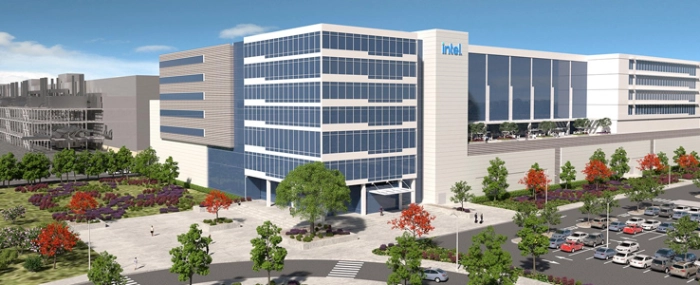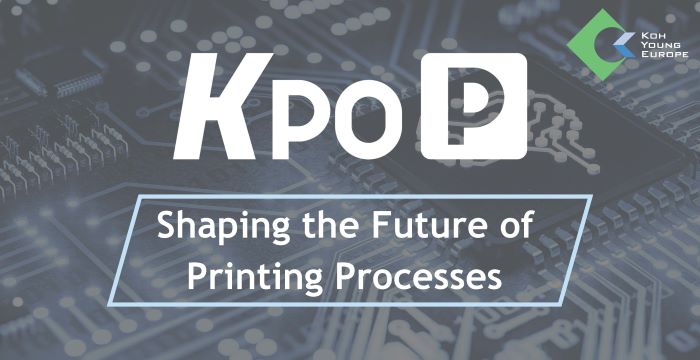
Intel to invest €33 billion in R&D and manufacturing in EU
The US chipmaker says that it will make an initial investment of over EUR 33 billion for R&D and manufacturing in the EU. The investments will span France, Germany, Ireland, Italy, Poland and Spain.
Evertiq has previously reported about Intel's major plans regarding production in Europe. During a keynote at IAA Mobility in Munich, Germany, Intel CEO Pat Gelsinger said that the company could invest as much as EUR 80 billion in Europe over the next decade to boost chip capacity.
Today he provided further information to that statement. Intel has now officially announced the first phase of its plans to invest as much as EUR 80 billion in the EU over the coming decade. The initial investment of EUR 33 billion will cover both R&D and manufacturing in the EU.
In a press release the company details that this includes plans to invest an initial EUR 17 billion into a ”leading-edge semiconductor fab mega-site” in Germany, to create a new R&D and design hub in France, and to invest in R&D, manufacturing and foundry services in Ireland, Italy, Poland and Spain.
“Our planned investments are a major step both for Intel and for Europe. The EU Chips Act will empower private companies and governments to work together to drastically advance Europe’s position in the semiconductor sector. This broad initiative will boost Europe’s R&D innovation and bring leading-edge manufacturing to the region for the benefit of our customers and partners around the world. We are committed to playing an essential role in shaping Europe’s digital future for decades to come,” says Intel CEO Pat Gelsinger, in the press release.
The company says that the investment program is centered around ”balancing the global semiconductor supply chain with a major expansion of Intel’s production capacities in Europe”. In the initial phase, Intel plans to develop two first-of-their-kind semiconductor fabs in Magdeburg, Germany.
Planning is suppose to start immediately and construction expected to begin in the first half of 2023 with production currently planned to come online in 2027 — pending European Commission approval. These new fabs are expected to deliver chips using Intel’s Angstrom-era transistor technologies.
With the initial EUR 17 billion investment, the company says that it will create 3,000 permanent jobs at Intel, and tens of thousands of additional jobs across suppliers and partners. Intel plans to refer to the new site as the ”Silicon Junction” – as it will function as connection point for other centers of innovation and manufacturing.
At the same time, Intel will continue to invest in its Leixlip, Ireland, expansion project. The US chipmaker says that it will spend an additional EUR 12 billion to double the manufacturing space to bring Intel 4 process technology to Europe and expand foundry services.
In addition, Intel says in the press release that it has entered into negotiations in Italy to enable back-end manufacturing facility. With a potential investment of up to EUR 4.5 billion, this factory would create approximately 1,500 Intel jobs plus an additional 3,500 jobs across suppliers and partners. If all the puzzle pieces fall into place, operations at the Italian site are expected to start between 2025 and 2027.
In total, Intel plans to spend more than EUR 33 billion to beef up its presence and manufacturing capabilities in Europe.
What about R&D?
Intel is not done with its major news for Europe. The company says that it intends to make France its European headquarters for high performance computing (HPC) and artificial intelligence (AI) design capabilities. Around Plateau de Saclay, France, Intel plans to build its new European R&D hub, which will see the creation of 1,000 new jobs, with 450 jobs available by the end of 2024.
But there are more good news for France as Intel plans to establish its main European foundry design center in the country. However, the company did not provide any further details regarding this.
In Gdansk, Poland, Intel plans to increase its lab space by 50% with a focus on developing solutions in the fields of deep neural networks, audio, graphics, data center and cloud computing. This expansion is expected to be completed in 2023.
In Spain, the Barcelona Supercomputing Center and Intel have – for the past decade – been collaborating on exascale architecture. Now, focus lies on developing zettascale architecture for the next decade. The supercomputing center and Intel plan to establish joint labs in Barcelona to advance computing, the press release continues.


.jpg)
